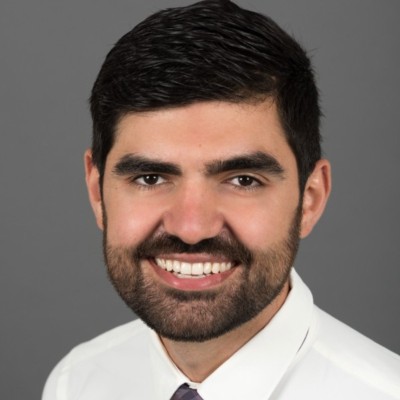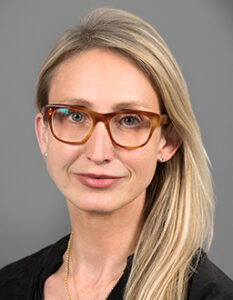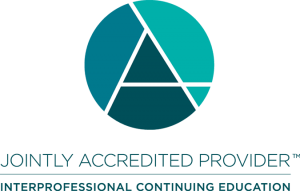Introduction to Pediatric Cardiac Disease: Management of Congestive Heart Failure (1 hr.)
This course reviews the basic approach to diagnosing and treating children with congestive heart failure. Highlights of this course includes a basic overview of the clinical presentation and pathophysiology of congestive heart failure, and the diagnosis and management of congestive heart failure.
This content was created by OPENPediatrics, a peer-reviewed medical education platform for healthcare professionals. Please see www.openpediatrics.org for more information.
$50.00
Description
 Faraz Alizadeh, MD – Course Director
Faraz Alizadeh, MD – Course Director
Pediatric Cardiology Fellow at Boston Children’s Hospital
 Christina J. VanderPluym, MD – Speaker
Christina J. VanderPluym, MD – Speaker
Medical Co-Director, Cardiac Antithrombosis Management Program (CAMP)
Pediatric Cardiology Fellow at Boston Children’s Hospital
Medical Director, Ventricular Assist Device Program
Medical Co-Director, Stroke and Cerebrovascular Center
Associate Cardiologist, Department of Cardiology
Associate Professor of Pediatrics, Harvard Medical School
Senior Associate in Cardiology
Associate Professor of Pediatrics, Harvard Medical School
Overview
This course reviews the basic approach to diagnosing and treating children with congestive heart failure. Highlights of this course includes a basic overview of the clinical presentation and pathophysiology of congestive heart failure, and the diagnosis and management of congestive heart failure. The course is intended for physicians and nurses who provide care for infants and children with congestive heart failure. It addresses the need for improved healthcare provider education on the pathophysiology and clinical presentations of congenital heart disease to facilitate early detection in infants. Informed healthcare providers will be able to better provide effective treatment and care to this high-risk population of pediatric patients.
Learning Objectives:
At the conclusion of this educational program, learners will be able to:
- Develop a differential diagnosis of structural heart lesions that typically present at one week of life versus one month of life.
- Explain the key features and pathophysiology of specific cardiac lesions that present as congestive heart failure in the newborn period.
- Review the basic concept of how the management of heart failure is linked to the specific cause and pathophysiology of heart failure.
- Identify and recognize how non-cardiac factors may contribute to cardiac dysfunction in patients with heart failure.
- Become familiar with different pharmacological interventions for both mild-moderate heart failure and advanced heart failure and their mechanisms of action.
- Review non-pharmacological therapies for the management of heart failure.
- Identify potential complications of heart failure and strategies for prevention.
- Review general causes of heart failure in infants and children.
- Become familiar with the various classification systems and staging of heart failure in infants and children.
- Review the clinical manifestations (i.e. signs and symptoms) of heart failure in infants and children.
- Learn the diagnostic approach to heart failure in infants and children.
Accreditation
 In support of improving patient care, Boston Children’s Hospital is jointly accredited by the Accreditation Council for Continuing Medical Education (ACCME), the Accreditation Council for Pharmacy Education (ACPE), and the American Nurses Credentialing Center (ANCC), to provide continuing education for the healthcare team.
In support of improving patient care, Boston Children’s Hospital is jointly accredited by the Accreditation Council for Continuing Medical Education (ACCME), the Accreditation Council for Pharmacy Education (ACPE), and the American Nurses Credentialing Center (ANCC), to provide continuing education for the healthcare team.
Physician
Boston Children’s Hospital designates this live activity for a maximum of 1.0 AMA PRA Category 1 Credits ™. Physicians should claim only credit commensurate with the extent of their participation in this activity.
Nurse
Boston Children’s Hospital designates this activity for 1.0 contact hours for nurses. Nurses should only claim credit commensurate with the extent of their participation in the activity.
Disclosures
Boston Children’s Hospital adheres to all ACCME Essential Areas, Standards, and Policies. It is Boston Children’s policy that those who have influenced the content of a CME activity (e.g. planners, faculty, authors, reviewers and others) disclose all relevant financial relationships with commercial entities so that Boston Children’s may identify and resolve any conflicts of interest prior to the activity. These disclosures will be provided in the activity materials along with disclosure of any commercial support received for the activity. Additionally, faculty members have been instructed to disclose any limitations of data and unlabeled or investigational uses of products during their presentations.
The following planners, speakers, and content reviewers, on behalf of themselves, have reported the following relevant financial relationships with any entity producing, marketing, reselling, or distributing health care goods or services consumed by, or used on patients:
| Speaker Name, Degree | Disclosure |
|---|---|
| Faraz Alizadeh, MD | None |
| Christina VanderPluym, MD | Merck Scientific oversight committee for Veriguciat clinical trial |
| Michael Freed, MD | None |
| Kathleen Huth, MD, MMSc | None |
| Sara Drumm, RN, CCRN |
None |
Additional information
| Credit Type | AMA PRA Category 1 Credits™ (MD, DO, NP, PA), Contact Hours (Nurse, Nurse Practitioner) |
|---|---|
| Duration | |
| Format | |
| Topic | Cardiology, Critical Care Medicine, Hospital Medicine, Newborn Medicine |
| Expiration Date | |
| Release Date |




